Presentations and Policy
The work done by Dr. Christine Kreuder Johnson and the EpiCenter team has far-reaching influence within and beyond the realm of academia. Disease emergence, spillover, and subsequent spread in human populations are inextricably tied to the health of animals and our environment. The need for research to inform science and policy remains pressing, now more than ever, in our era of a rapidly changing environment and shifting landscape use at the animal-human interface.
Through commentary pieces, conference presentations, epidemiological support, congressional briefings, and invited testimony to state and federal governments and intergovernmental international partners, we work to support science-based decision-making and public policy at home and all around the world.
Jump to: Featured Engagement | Featured Policy Pieces | Featured Presentation | More Policy Pieces | More Presentations and Briefings | More Publications
Featured Engagement
The EpiCenter, under the guidance of Dr. Pranav Pandit, provided crucial modeling on the potential for SARS-CoV2 spread in a classroom setting in order to inform UC Davis campus policy with the return to in-person instruction during Fall Quarter, 2021.
Modeling SARS-CoV2 spread in a classroom setting
For more information and resources related to Covid-19, see UC Davis Campus Ready and the Centers for Disease Control and Prevention Covid-19 page.
Featured Policy Pieces
Research and publications produced by the EpiCenter team influence and help shape policy for national and international agencies and are frequently cited as key evidence and resources.
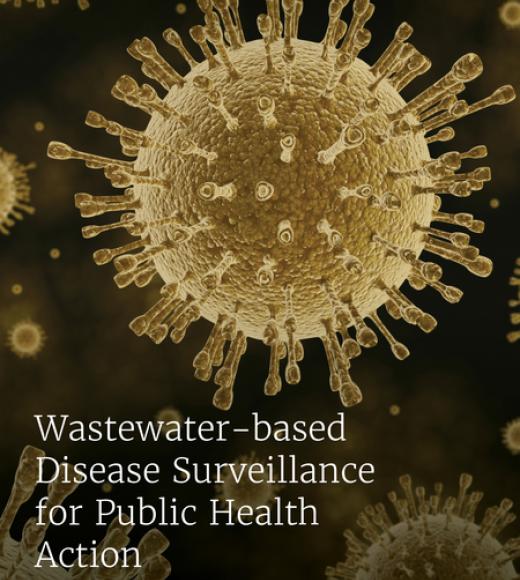
Wastewater-based Disease Surveillance for Public Health Action
Produced by the National Academies of Science, Engineering, and Medicine at the request of the CDC, this consensus study report reviews the usefulness of community-level wastewater surveillance during the pandemic and assesses its potential value for the control and prevention of infectious diseases beyond COVID-19. – February 2023
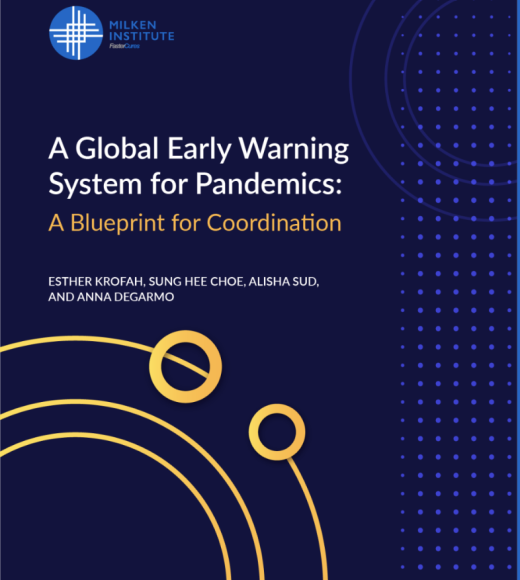
A Global Early Warning System for Pandemics: A Blueprint for Coordination
A review by the Milken Institute of the US approach to pandemic preparedness and the resulting impact on Covid-19 responses in order to identify and prioritize the needed next steps to address future pandemic threats, as envisioned in the report ‘A Global Early Warning System for Pandemics: Mobilizing Surveillance for Emerging Pathogens’. – March 2022

A Global Deal for Our Pandemic Age
A paper co-authored by Dr. Johnson served as a key resource in the preparation of this 2021 report by the G20 High-Level Independent Panel on Financing the Global Commons for Pandemic Preparedness and Response. The paper ‘Preventing the next pandemic: the power of a global viral surveillance network’ analyzed current systems and called for a global viral surveillance network. – June 2021
Featured Presentation
Hosted by the UC Davis Office of Research, Dr. Christine Kreuder Johnson, Dr. Tierra Smiley Evans, and Dr. Pranav Pandit of the EpiCenter, joined by Dr. Cristina Davis, Dr. Jonathan Eisen, and Dr. Zhaodan Kong, spoke on a trans-disciplinary panel discussing the future research needed to address the technical and scientific challenges for pandemic preparedness.
- More Policy Pieces
-
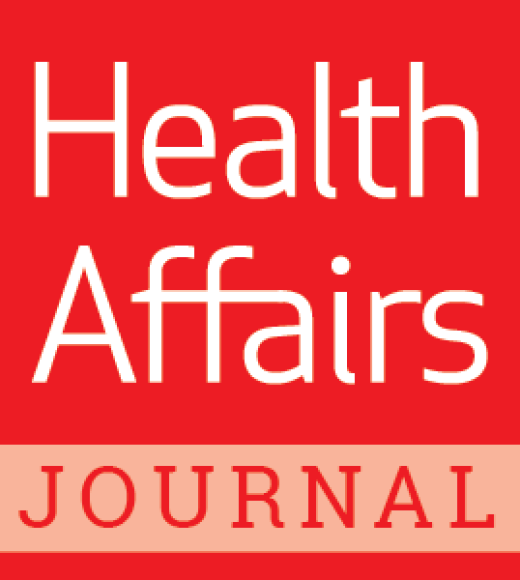
Infectious Disease Threats: A Rebound to Resilience
Dr. Johnson co-authored this review of the US approach to pandemic preparedness and the resulting impact on Covid-19 responses as part of the National Academy of Medicine’s Vital Directions for Health and Health Care: Priorities for 2021 initiative. This review identifies needed steps to address future pandemic threats, domestic and abroad. – January 2021
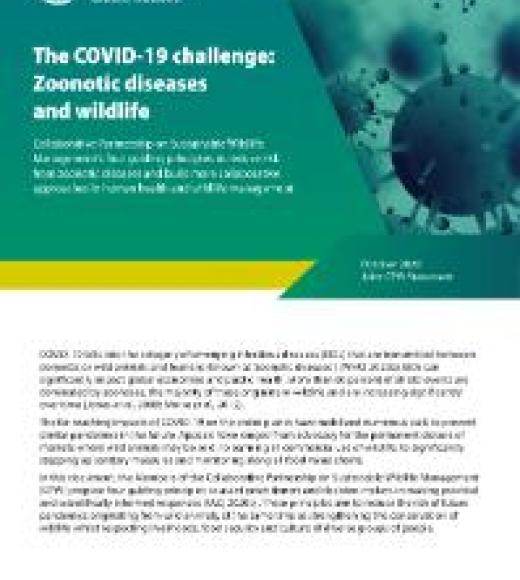
The COVID-19 challenge: Zoonotic diseases and wildlife
The Members of the Collaborative Partnership on Sustainable Wildlife Management (CPW), part of The Food and Agriculture Organization of the United Nations, cited research by the EpiCenter in the development of a statement detailing four guiding principles to reduce risk from zoonotic diseases and build more collaborative approaches in human health and wildlife management. – July 2021
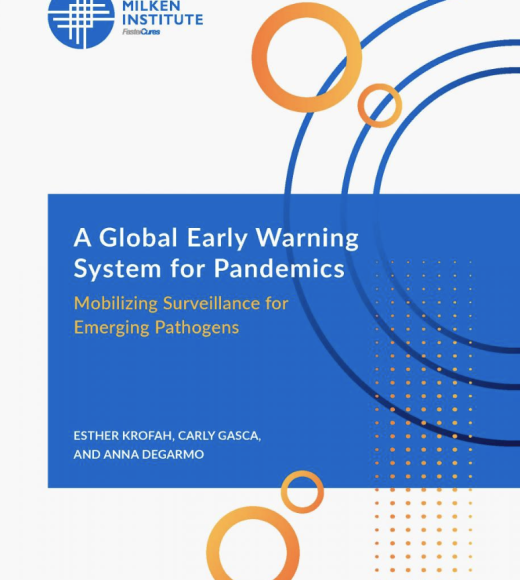
A Global Early Warning System for Pandemics: Mobilizing Surveillance for Emerging Pathogens
Milken Institute – June 2021
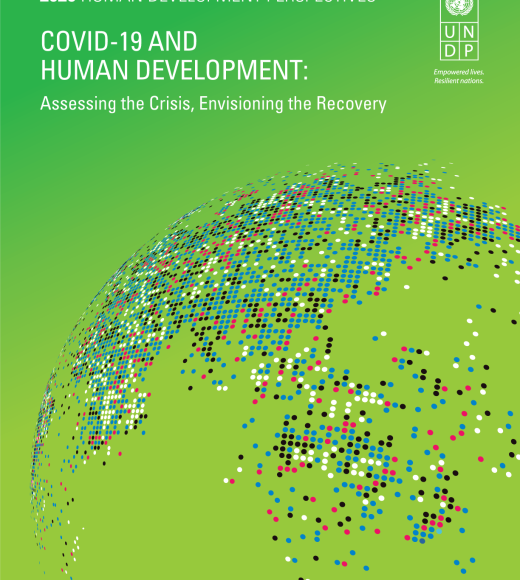
COVID-19 and Human Development: Assessing the Crisis, Envisioning the Recovery
The United Nations development Program headquarters, the office for Latin America and the Caribbean, cited research by the EpiCenter in the development of three guiding principles in responding to the human development crisis resulting from the covid-19 pandemic. – 2020
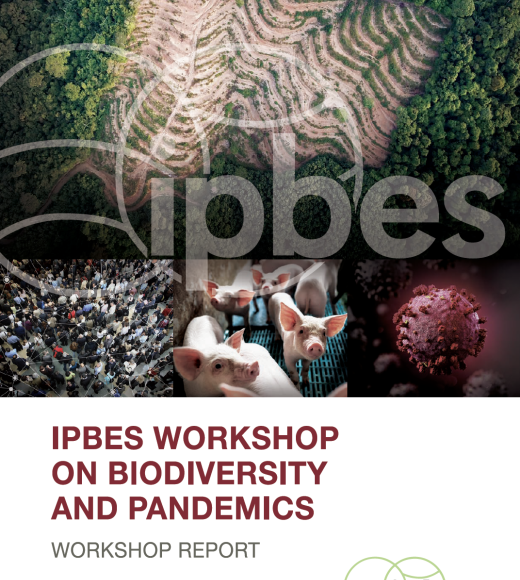
Intergovernmental Science-Policy Platform on Biodiversity and Ecosystem Services (IPBES) Workshop on Biodiversity and Pandemics Report
This report cited research by the EpiCenter on the links between the degradation of nature and increasing pandemic risks. It offers several policy options to help to
assess and reduce future pandemic risk. – 2020 -
❯ Grand Challenges: Harnessing the Power of UC Davis – 4 November 2022
❯ Dr. Johnson was the keynote speaker for American Society for Virology conference – 16 July 2022
❯ UC Davis Team Research Forum: Preparing for the Next Pandemic – 22 April 2022
❯ Dr. Pranav Pandit spoke at ANIL AGARWAL DIALOGUE 2022 – 1 March 2022
❯ Dr. Christine Kreuder Johnson AAAS Fellow – 26 January 2022
❯ ‘Broadening the Evidence-base for Mitigating Risk of Emerging Disease: Knowledge Gaps and Research Challenges in the Face of Rapid Global Environmental Change’ – Dr. Johnson served as a IMED Panel Moderator, 04 November 2021
❯ Dr. Christine Kreuder Johnson was elected to the National Academy of Medicine – 18 October 2021
❯ 'Catalyzing innovation for surveillance of emerging pandemic threats in an era of accelerated global change' – Dr. Johnson was the Opening Keynote for Scialog: Research Corporation for Science Advancement meeting on Mitigating Zoonotic Threats, 30 September 2021
❯ 'Topics in Infection: One Health Strategies for Surveillance along the Fault Lines of Emerging Infectious Disease' – Dr. Johnson Presented for the Royal Society of Tropical Medicine and Hygiene, 18 June 2021❯ 'Pivotal Interfaces of Environmental Health and Infectious Disease Research to Inform Responses to Outbreaks, Epidemics, and Pandemics' - A Workshop – Dr. Johnson served as a committee member for a NASEM workshop that examined current environment–infectious disease interface knowledge and explored its utility for public health decisions, 08 June 2021
❯ 'Emerging Pandemic Threats in an Era of Accelerated Global Change' – Dr. Johnson was a Keynote Speaker for the Novartis Institutes for BioMedical Research Science of Therapeutics Symposium, 08 June 2021
❯ Advances in COVID-19 Prevention and Treatment Enabled by Structural Biology Research: 'Catalyzing Innovation for Emerging Pandemic Threats' – Dr. Johnson presented for the Argonne National Laboratory, 12 May 2021
❯ 'Predictive Intelligence for Pandemic Prevention: Readiness for Emerging Pathogens' – Dr. Johnson organized, moderated and presented for the NSF PIPP Pandemic Readiness for Emerging Pathogens Workshop, 16 February 2021❯ Intergovernmental Science-Policy Platform on Biodiversity and Ecosystem Services (IPBES) workshop on modeling Nature Futures scenarios - Dr. Pranav Pandit served as a modeling and scenario expert for this workshop on modeling Nature Futures scenarios under the 2030 IPBES rolling work program. January 2021
❯ 'Preventing, Detecting, Responding to, and Recovering from Future Threats' – Dr. Johnson presented for the PMAC 2021 Bangkok, Thailand, 01 December 2020
❯ 'Preventing Pandemics' – Dr. Johnson presented for the National Caucus of Environmental Legislators, State Legislators Briefing, 06 Oct 2020❯ 'Preventing the Next' – Dr. Johnson was an Invited Speaker for the Sustainable Development Impact Summit, World Economic Forum, UN General Assembly, 23 September 2020
❯'Preventing the Next Pandemic, How Can Investors Manage Deforestation Risks?' – Dr. Johnson was an Invited Speaker for the UN Finance Initiative and UN Global Compact, Principles for Responsible Investment Conference, 02 September 2020.
❯ ‘The Growing Threat of Wildlife Disease to Human Health and What We Can Do To Prevent It’ – Dr. Johnson addressed The House Committee on Natural Resources, 19 May 2022 - More Publications
-
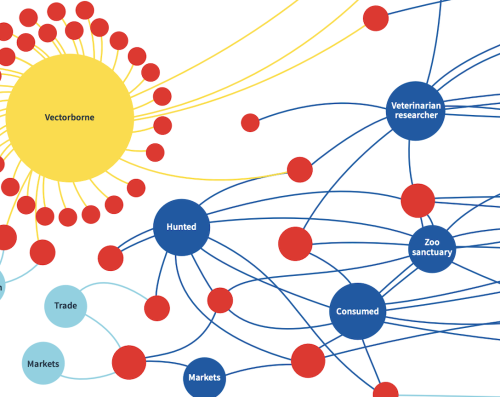
The Little Book of Data
Features an epidemiologic bipartite network map showing high-risk disease transmission interfaces shared by zoonotic viruses transmitted from wildlife to humans from the 2015 Nature paper “Spillover and pandemic properties of zoonotic viruses with high host plasticity”. This curated collection of data visuals illuminates key global trends and aims to provide investors with a different perspective on the world and help guide their decisions.
